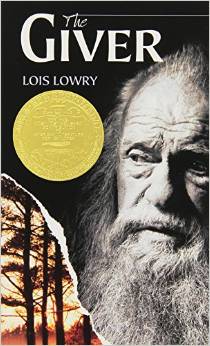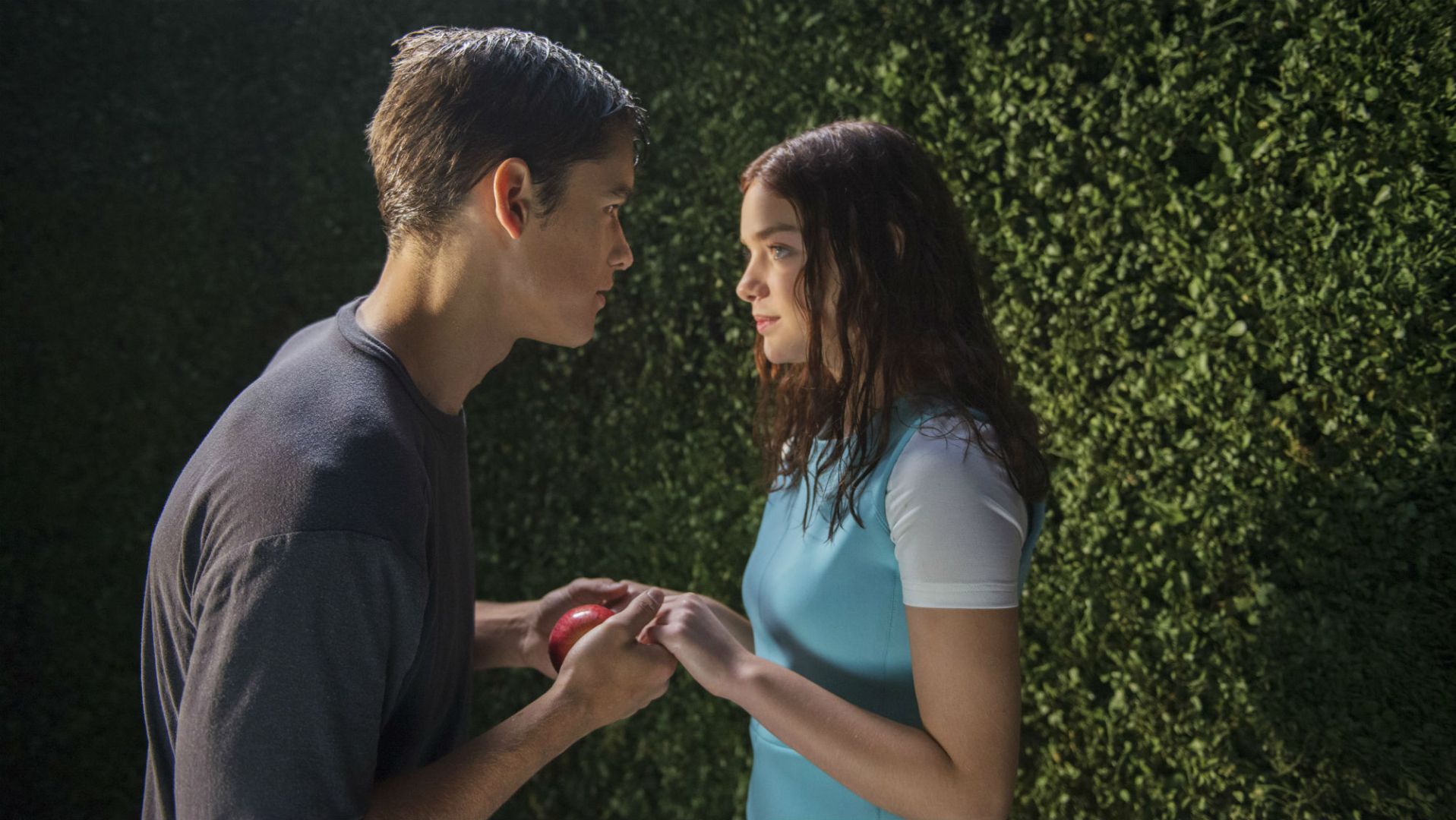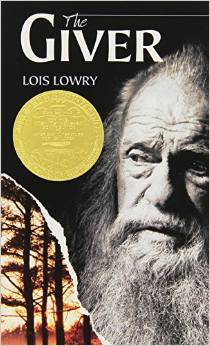Alissa's note: I asked Elissa Cooper, CT's assistant editor who recently saw the film adaptation of The Giver (out this weekend), to write about some of her thoughts on the books and the film. And I'm very glad I did.
We'll also run a review of the film this weekend.
Four and a half years ago, as an intern for CT, I visited a home that provided aftercare for trafficked teenage girls. Between interviews, I participated in their daily lives: We ate meals together, went shopping, and just sat and talked. One night, some workers talked about how one of the hardest challenges involved hearing the girls’ stories.
“Jordan”’s past experiences were pretty horrific. Nightmares plagued her. She shared her memories with the others so she could talk through issues and pray and try to alleviate the pain. But in hearing Jordan’s memories, others had nightmares and struggled with the pain and evilness of it all.
When we reached a break in the conversation, I asked, “Have you ever read The Giver?”
It sounds like a strange question. Why think of a secular juvenile book that has absolutely nothing to do with sex trafficking?

But I had my reasons for not suggesting a Christian story. First, the Christian workers already had theology and spirituality texts at their disposal—they even wrote some of the books. Second, not all the residents claimed a Christian faith, so this provided another outlet for reaching the girls. But most importantly, The Giver—the book and its subsequent companions in the Giver Quartet as well as the recent film—makes a strong case for the importance of sharing memory, both for the individual and the community. As a result, it also dips into spiritual matters. And the film goes even deeper.
In case you’re not familiar with The Giver, the 1993 book won the Newbery Medal. (It also landed on frequently challenged or banned books, but more on that later.) It is widely considered the forerunner of dystopian literature for children and young adults. Yet in a 2007 interview, author Lois Lowry said that she didn’t set out to create a dystopia when writing it. The community was “without war, poverty, crime, alcoholism, divorce—and without the troubling memories of those things. Only gradually did I begin to understand that I was not creating a utopia—but a dystopia. I slowly understood that I was writing about a group of people who had at some point in the past made collective choices and terrible sacrifices in order to achieve a level of comfort and security.”
Jonas, the main character of The Giver, realizes this after becoming the Receiver of Memory. The Giver holds all the memories of the world past, and gives them to Jonas so Jonas can remember once the Giver is gone. The memories help serve the Elders in making decisions for the community. In the book, they once talked about increasing the size of a family unit from two children to three children. But the Giver reminds them that the food supply might stretch, leading to shortages and hunger, so the family unit size remains the same.
The Elders, who assigned Jonas as Receiver, consider this a utilitarian position, but Jonas sees it in a different way. Jonas receives beautiful memories of things he’s never experienced or heard about, like sledding, but also terrible things, like war. And in addition to grappling with the new knowledge, Jonas faces isolation. Only he and the Giver know such things existed. As Jonas’s friends learn their new jobs, they can talk about their experiences and still play together. Jonas stands alone. And the burden of memory is too much to bear alone.
Despite acclaim, concerned parents challenged the book, claiming infanticide, euthanasia, and scenes dealing with violence or sex were inappropriate for young readers. Some claimed that it “desensitized” readers to those issues.
At the end of the screening, we talked as the credits rolled. One point of discussion involved one of the story’s most controversial scenes: (Spoiler) Jonas’s father, who cares for the babies as Nurturer, euthanizes an infant. The community doesn’t allow twins, so the smaller one is sent to “Elsewhere.” Jonas and the others assume it’s just another community.
One viewer had looked away during that scene. The rep, who had watched it at home, told her teenage son to look away. Another viewer brought up how that scene terrified children—especially twins—reading it for school, and how it wasn’t appropriate for younger readers. But I disagree.
As a kid, I frequently took the books my older sister left around the house. I read the last chapter or so and then taunted her that I knew what happened. (I understand now that this is obnoxious, but I thought it was hilarious. Plus, even though it was “naughty,” my parents could hardly punish me for reading books.) The Giver fell victim to my prank. And then I read it all. By any “official” standard, I was not supposed to read it. I barely met the recommended age level. It was totally unsupervised—I didn’t have a teacher leading discussion or fellow readers to talk with. But I understood the language and the content. And it resonated with what I was starting to understand as a kid but couldn’t quite put into words: The world doesn’t fall neatly into good and bad. Things that people tolerate or seem acceptable shouldn’t be so.
I later saw my sister’s middle-school class perform that scene. It hardly desensitized me. Instead, I—like others—wanted to scream with Jonas about the injustice of it; the waste of human life; the betrayal of someone you think is good and loving and should know better. You don’t want to shrug your shoulders and go on with your day as if nothing has happened, like Jonas’s father. That defeats the point of the story—the scene is supposed to invoke emotion and a response. You don’t want to ignore the outrageous truth.
Consider Josiah. Josiah was 8 years old when he inherited the throne in Judah. His father “did evil in the eyes of the Lord” (2 Kings 21:2) and led others astray, but Josiah followed the ways of King David. How did Josiah know better? His father had established a normalcy in the kingdom, where idols and sacrifices flourished. Josiah had people to lead him in the right direction, and then in the 18th year of his reign, they showed him the Book of the Law. Josiah “tore his robes” (2 Kings 22:11). With the knowledge in front of him, Josiah recognized that he and the people had disobeyed God and changes needed to be made—pronto. Again and again in the Bible, people recover a lost law, a lost book, a lost memory. And those things need to be remembered and practiced.
It’s hard to expose children to the truth—it breaks innocence. The world becomes more scary. But how can we make the right decision if we don’t have the knowledge available? How do we fall into a mindset that’s hard to get out of if there’s nothing else to challenge it?
The same interview asked Lowry about giving the characters’ biblical names—Jonas, Gabriel, and one of my favorites, happy, fun-loving Asher (who, unfortunately, turns out to be a real wet blanket in the movie)—but Lowry claimed that was unintentional. “If I had begun to think in literally Christian terms, I would have backed off of the project because I have no interest in writing ‘religious’ books,” Lowry said. “Still, clearly, the theology is there, inherent in the story.”
And the movie lets loose on spiritual talk and images. The Giver talks about how faith means seeing beyond what’s in front of Jonas. In his impassioned plea to stop an execution, the Giver talks about faith, hope, and love, and how one leads to another. The filmmakers could have slipped a little Frederick Buechner in the speech: “The past and the future. Memory and expectation. Remember and hope. Remember and wait. Wait for him whose face we all of us know because somewhere in the past we have faintly seen it, whose life we all of us thirst for because somewhere in the past we have seen it lived, have maybe even had moments of living it ourselves. . . . To have faith is to remember and wait, and to wait in hope is to have what we hope for already begin to come true in us through our hoping.” One of the memories Jonas experiences is a father holding his newborn child, tearing up in the wonder and joy of his own creation. It’s not just a memory, but a possible hope for him if he lived in a different world. As one character says, things have been “stolen” from her—emotions, hope, love. (I totally want to write another post just about how this character is a mash-up that includes Gabe’s mother in Son, the fourth Giver book.)
Die-hard fans that grew up with the book might be disappointed that the movie doesn’t stick too closely to the story. But it stays true to the message. And it actually made me love the story more.
I had feared that the setting looked too futuristic and would take away from the story, that it was just a gimmick to try to compete with blockbusters. Yet it makes the story more powerful. As the Giver shares memories with Jonas, the flashing images are from our world, our time: mundane things, like a child laughing in the rain or a couple kissing, to world events, like tearing down the Berlin Wall or the man in front of the tanks at Tiananmen Square, to Nelson Mandela’s smiling face. The film’s depiction made The Giver’s world all the more real—and plausible.
Elissa Cooper is assistant editor of Christianity Today magazine.










